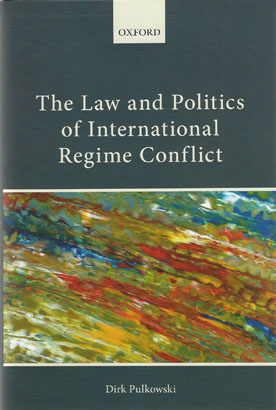
The international order is constituted by a plurality of international regimes-institutionalized arrangements in different areas which possess their own norms and procedures. This book examines how conflicts among regimes may arise, and investigates the role that international law can play in managing these regime conflicts.
The book posits that three dimensions are characteristic for regime conflicts: First, they can reflect a conflict between the overall goals of the different regimes. Second, such conflicts are institutionalized and perpetuated through the interaction of the actors representing these regimes, reflecting political power struggles betweeen institutions. Third, regime conflicts may manifest themselves in direct conflicts of legal rules: if a state acts in conformity with the rules of one regime, its conduct may trigger a violation of the rules of another regime.
Throughout the book, the example of trade in cultural products is used to illustrate the evolution of regime conflicts and the potential for their management. Conflicts between the goals of 'free trade' and 'cultural diversity' have notably surfaced within the World Trade Organization (WTO) and the United Nations Educational, Scientific and Cultural Organization (UNESCO). As a result, there is a potential for rule conflicts among WTO law, the UNESCO's Convention on the Protection and Promotion of the Diversity of Cultural Expressions, and human rights.
The book argues that while international law may not wholly function as an integrated and fully unified system, it does provide a common language for different regimes to engage with each other, based on shared rules of discourse. This common language can allow for the policies of various international regimes to be coordinated together. The book asserts that ultimately international law can help manage regime conflicts by preventing conflicts of rules through these common techniques of interpretation, and by providing the tools for adjudicating any conflicts of rules that may remain.